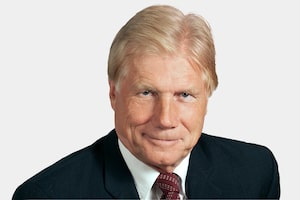Remember when Stephen Harper declared Brian Mulroney an outcast? Don't talk to that guy, he told his Conservative flock during the Karlheinz Schreiber affair. Things got worse. The Prime Minister's Office put out word that Mr. Mulroney wasn't even a party member.
Now we learn that Mr. Harper recently went to Mr. Mulroney to get his advice on Quebec. Relations between the two camps are still bad enough that some of Mr. Mulroney's close associates hoped he would turn down the meeting. He didn't, and the session, arranged by Nigel Wright (who is Mr. Harper's chief of staff but once worked for Mr. Mulroney) went on cordially enough for more than an hour.
This was a smart move by Mr. Harper. It showed he is not beyond being conciliatory. Given the state of relations between the two men, his visit required a setting aside of ego.
It was also an effective way to send a signal that Mr. Harper is serious about building support in Quebec, where his party has just five seats. As Parti Québécois Leader Pauline Marois noted, Mr. Mulroney understands the province. He could have helped the Conservative cause there in previous elections, were it not for the freeze-out. He isn't about to suddenly start beating the drum in support of Mr. Harper's government, but the thaw will help.
Of course, in arranging the meeting, Mr. Harper wasn't acting out of the goodness of his heart. Political necessity was behind it. Worries mount on the subject of Quebec. The province has been off the big radar screen for a long time and Mr. Harper has not had to overly concern himself with his lack of support there. But the magnitude and endurance of the student protest movement has taken many by surprise. The construction industry corruption probe imperils the popularity of Jean Charest's government. An election is likely within a few months, and it's an election that could bring the separatists back to power and conceivably start another march toward a referendum.
These are big ifs, but the PM has to bear them in mind. While he and his party are in the dumps in Quebec, the popularity of Thomas Mulcair and the New Democrats is through the roof. In the event of another secession debate, Mr. Mulcair would be the leader with the clout. He would be in position to call the shots.
Any Quebec comeback for the Tories faces great hurdles. The 2011 Canadian Election Study shows that three keys issues drove the amazing NDP surge there: support for increased spending on the environment and on health care, and support for higher corporate taxes. In many respects, Quebec remains one of the country's most left-leaning provinces. The gateway for a strongly conservative government is small indeed.
It is understood that at the meeting, Mr. Mulroney, in recommending what the PM might do to improve his fortunes, put in a plug for one of his favourite cabinet ministers, Maxime Bernier, currently Minister of State for Small Business and Tourism. In the expected cabinet shuffle, it will not be a surprise to see Mr. Bernier back in a major portfolio.
Mr. Harper's difficulties extend beyond Quebec. His Conservatives have been trailing the NDP in national polls, a development that must very much grate on him. His favourability numbers are dropping. His parliamentary secretary, Dean del Mastro, is the subject of an Elections Canada probe. He has just taken a clubbing over the omnibus budget bill, also known as the Trojan Horse bill.
Some of the problems, as Conservatives themselves recognize, are due to an affliction that affects many leaders: the arrogance of power. Reaching out to Mr. Mulroney was a welcome exception. The question is whether this flexibility and compromise can be extended to other domains.
 Lawrence Martin
Lawrence Martin